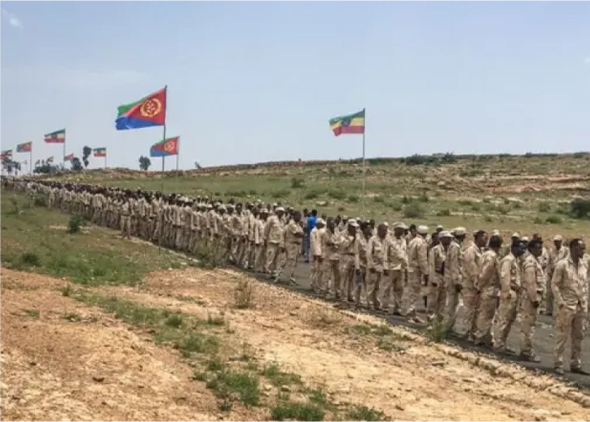After World War II, in 1962, Ethiopia annexed Eritrea. Following nearly 30 years of c onflict and billions of dollars spent, Eritrea finally gained independence in 1991. However, post-independence, the two countries clashed over various issues, including currency, trade, and numerous border disputes. Initially close allies, they established a commission to address their disputed border claims. As tensions escalated, violence erupted in the border regions. In 1998, a small contingent of Eritrean soldiers entered the Badme region of Ethiopia along the northern Tigray, violating international law. This incursion triggered violent clashes between Eritrean soldiers and the local Tigrayan militia. Weeks later, Ethiopia retaliated with airstrikes on the airport in Eritrea’s capital city, Asmara. By 2000, Ethiopia occupied nearly a quarter of Eritrea’s territory and displaced approximately 650,000 people. Ethiopia then declared victory and ended the war. Later in 2000, both parties signed a comprehensive peace treaty. Despite this, tensions remain high, and the border dispute continues today.
According to the Council on Foreign Relations’ Global Conflict Tracker, the Ethiopian-Eritrean conflict has a limited impact on the US and other global players, but the situation between the two countries is deteriorating and must be brought to the attention of diplomatic intervention. Given the prolonged and worsening tensions, any attempt to mend their relationship must be approached with caution and delicacy due to the ongoing dangerous situation for innocent people caught in the crossfire.

